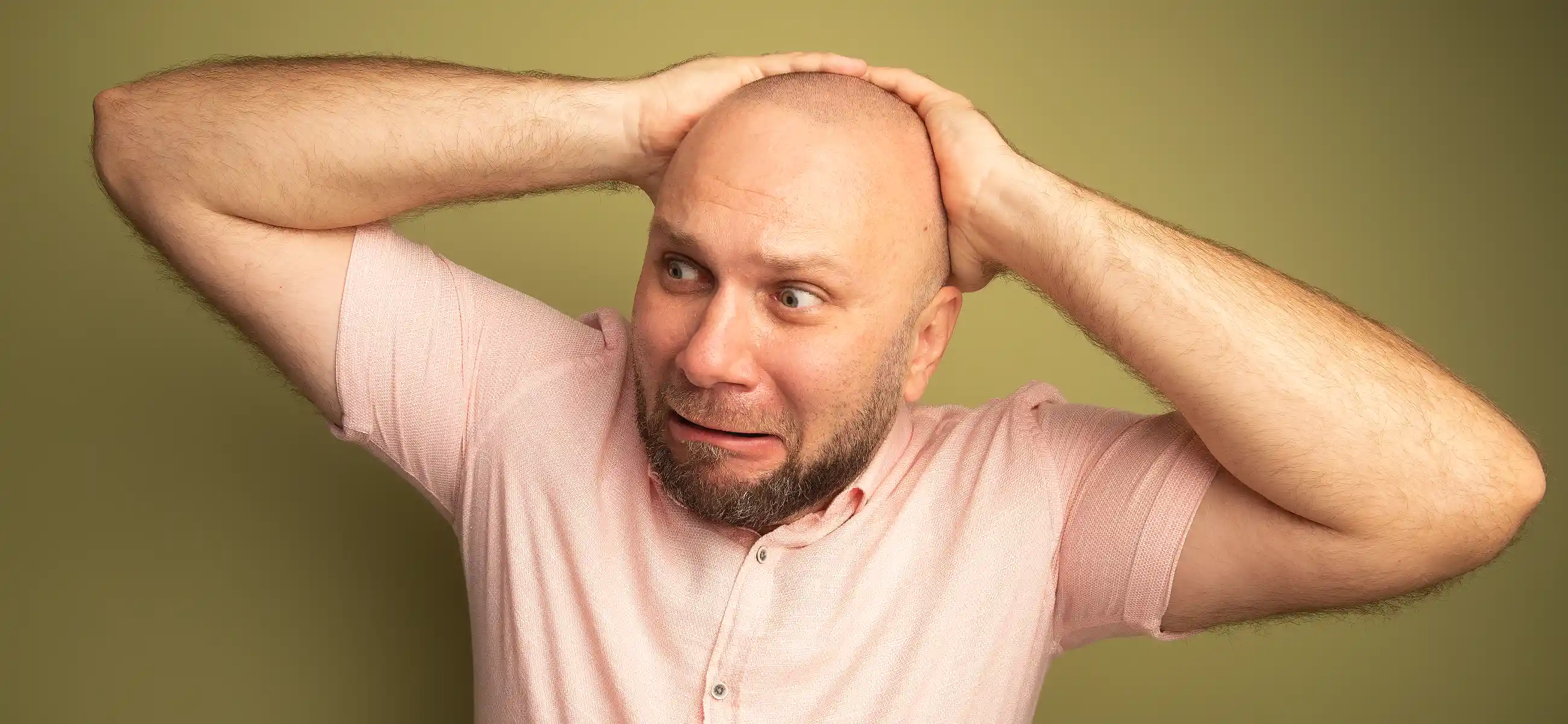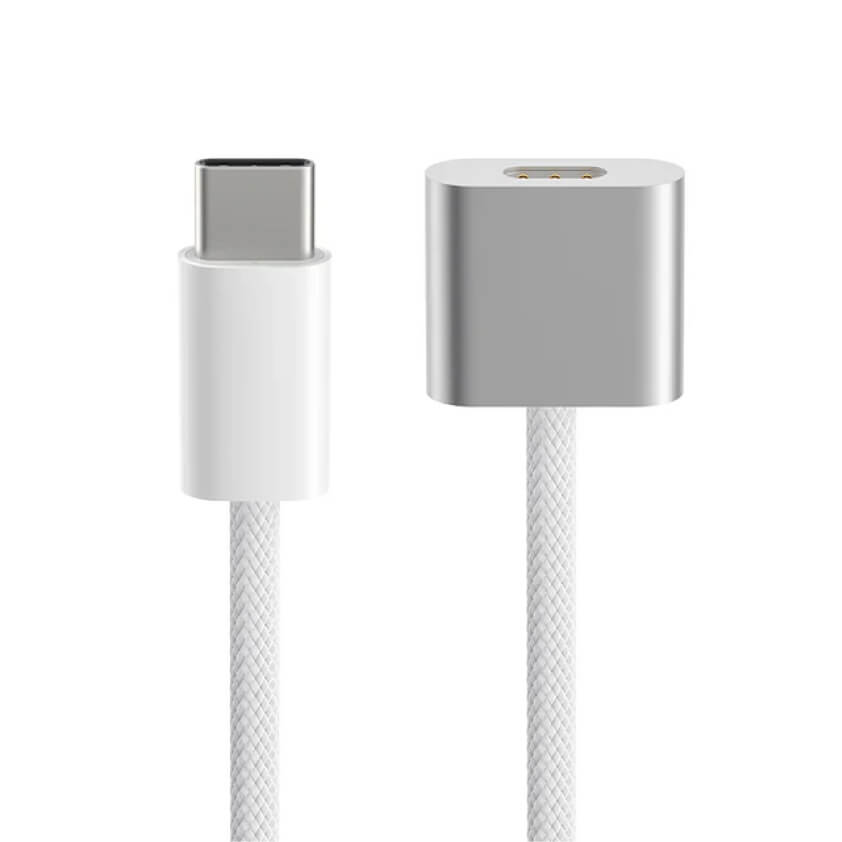
In this article
Nobody wants to lose their hair, regardless of the cause. However, the fact that so many things can potentially lead to baldness means you need to be aware of the potential causes so you can do something about it. In this article, we introduce you to the main causes of baldness and explain when you should see a doctor to try and combat the onset of hair loss.
What causes baldness?
Hair loss (alopecia) is commonly referred to as baldness. There are numerous causes of baldness; some people experience hair loss temporarily due to a medical condition, while others lose their hair permanently because of hereditary or genetic factors.
While both men and women lose their hair, complete baldness is much more common in men. As there are so many potential causes of baldness, we introduce the most common factors in this section to help you determine what might be causing your hair loss.
Hereditary factors
Hereditary factors are the leading cause of baldness in men and women. The condition is officially known as androgenetic alopecia, triggered by genetics and age. You might commonly here it referred to as male or female pattern baldness.
In men, it manifests as a receding hairline, while in women, it appears as thinning hair. There's little you can do to prevent balness that is triggered by your genetic disposition.
Medical conditions
Another common cause of baldness in both men and women is an underlying medical condition. For instance, alopecia areata is a health condition linked to your immune system, which causes patchy and sporadic hair loss.
Trichotillomania is a less common condition, resulting in hair pulling that can cause baldness.
Chemotherapy
If you're undergoing cancer treatment with chemotherapy, you are likely to suffer from hair loss. This is because the medicines attack the fast-growing cancer cells as well as your hair cells. Some people opt to shave off their hair during chemotherapy to prevent it from falling out in patches. Some other medications may cause hair loss as a side effect, so be sure to consult your doctor if you're concerned your hair loss is triggered by your current medication.
Hair styling
Believe it or not, the products and tools you use to style your hair can lead to baldness, albeit temporarily. For instance, using too much heat with an inferior hair dryer can cause your hair follicles to dry out and potentially fall from your hair. Switching to a dryer with adjustable heat settings, such as the Laifen Swift Special, can protect your hair in this regard.
Also, the styling products, shampoos, and conditioners you use can make a big difference. Avoid ingredients like sulfates and alcohol and opt for natural products wherever possible, as these nourish and replenish your hair follicles.
Stress
Some people lose their hair because of a stressful event that causes ongoing stress in their lives. This usually results in temporary hair loss, and when the stress is overcome, hair can grow back. Still, removing as many stressors from your life as possible is good for your hair's health.
Diet
Though a poor diet on its own is unlikely to cause your hair to fall out, it can negatively affect the growth of your hair. Just like every other cell in your body, your hair follicles need nutrients and minerals to grow and thrive. So, make sure you have sufficient iron in your body and consider taking a multivitamin if you're deficient in any key nutrients. You should also look to eat whole, plant-based foods wherever possible to help your hair grow.
Here's an overview of each of the common causes of baldness and whether they're applicable to men, women, or both:
|
♂️What causes baldness in men? |
♀️What causes baldness in women? |
|
Genetic and hereditary factors |
Genetic and hereditary factors |
|
Male pattern baldness |
Female pattern baldness |
|
Medical conditions like alopecia areata |
Medical conditions like alopecia areata, pregnancy, and hormonal imbalances |
|
Chemotherapy |
Chemotherapy |
|
Poor hair styling habits |
Poor hair styling habits |
|
Stress and poor diet |
Stress and poor diet |
What causes bald spots?
Bald spots in men are often a sign of male pattern baldness, though you will more commonly notice a receding hairline as the main symptom. In babies and young children, bald spots are usually caused by friction, where the child is spending too much time lying on one side. Where this occurs, switching to silk sheets can make a big difference and can help to prevent bald spots from forming.
Conclusion
As you now know, the causes of baldness are varied and depend on numerous factors. The most common cause of baldness is genetics, which usually manifests as male or female pattern baldness.
Where pattern hair loss occurs, there's not a great deal you can do about it in the long run, though medications like Finasteride and Minoxidil can help to treat it in the short term.
If you think your baldness is caused by a medication or an underlying health condition, please schedule an appointment with your doctor and consider the best form of treatment together.
FAQs
Q1: What causes baldness?
Baldness is caused by numerous factors, including genetics, medical conditions, chemotherapy, poor hair styling habits, and other issues like diet and stress.
Q2: What hormone causes baldness?
In men, a hormone called DHT can cause male pattern baldness. Finasteride is a drug that can block DHT and potentially prevent it from causing baldness.
Q3: What causes male pattern baldness?
Male pattern baldness is caused by genetics and hereditary factors. Though you can't prevent it in the long run, you can turn to medications like Finasteride and Minoxidil to try and slow the process of male pattern baldness.





















